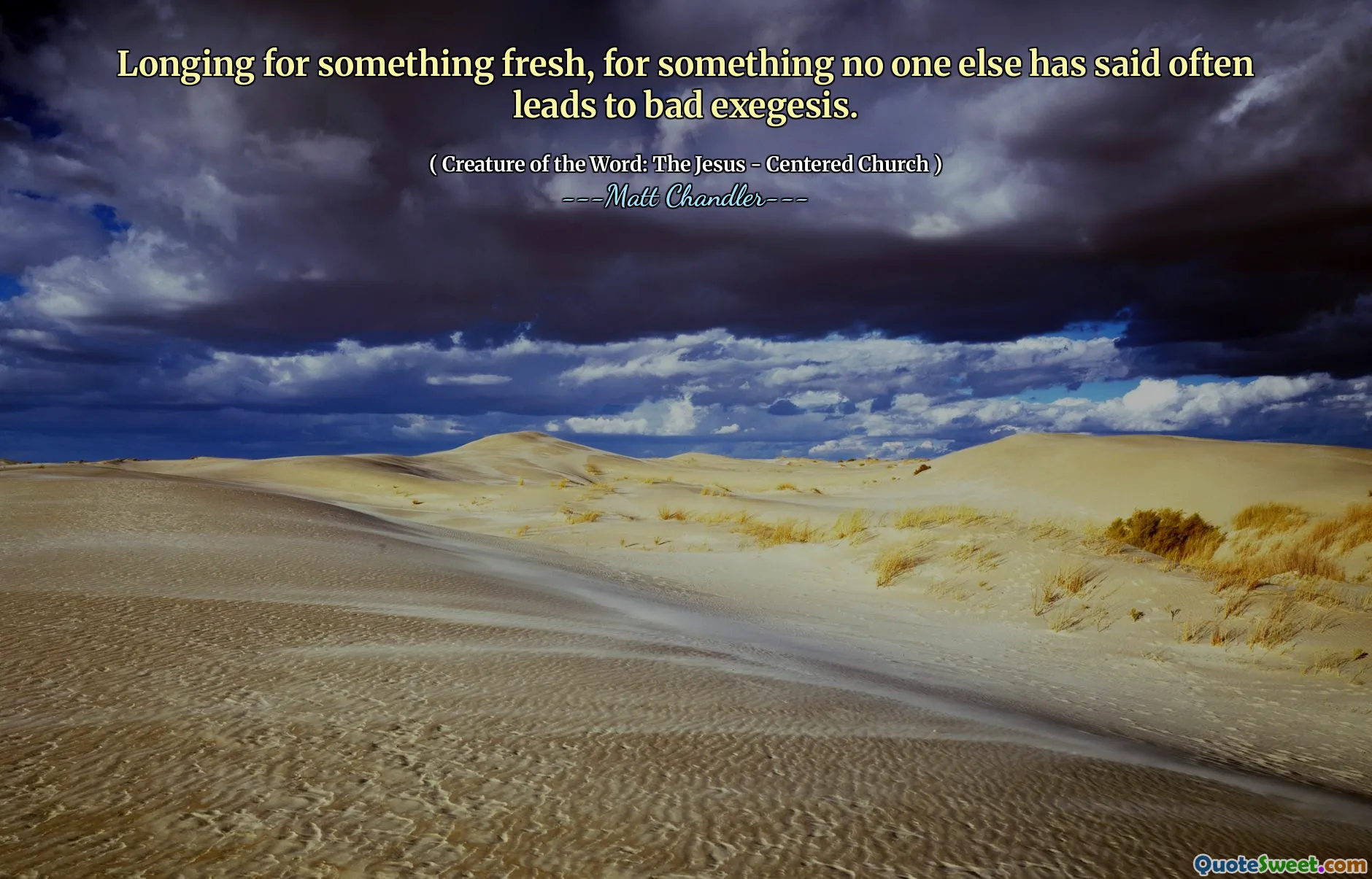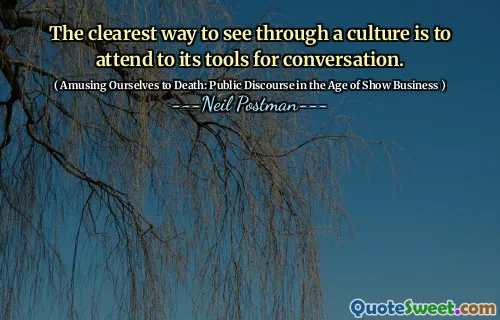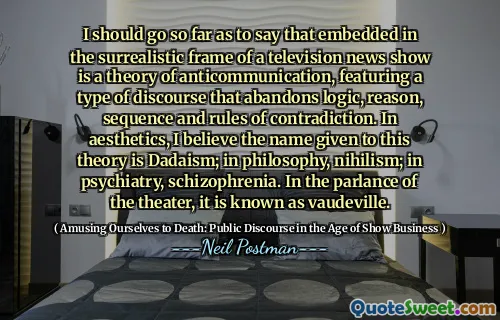
Longing for something fresh, for something no one else has said often leads to bad exegesis.
The desire for originality and uniqueness in interpretation is a natural human inclination, especially in the realm of understanding complex texts or ideas. However, as this quote suggests, this longing can sometimes push individuals toward reckless or flawed exegesis—careless interpretation of scripture or text in search of novelty. When a person sets out to find a new angle or a fresh insight, they may inadvertently dismiss essential historical, cultural, or theological contexts that ground the proper understanding of the text. This can lead to misrepresentations or superficial readings that distort the original message.
In the broader context of biblical exegesis, humility and a recognition of the richness of historical interpretations are crucial. Sometimes, the pursuit of originality overlooks the wisdom gained through centuries of commentary and reflection. Such pursuits risk elevating personal innovation over accurate exegesis, leading to misunderstandings or erroneous conclusions. Wisdom involves balancing the appreciation of the text's depth and tradition with a genuine search for insight.
The quote resonates with the idea that faithfulness to the text requires careful, measured engagement rather than seeking to impress with unexpected or contrarian interpretations. Challenging existing interpretations can be beneficial, but it should be rooted in thorough study rather than a superficial desire to stand out. The end goal should be a faithful, accurate understanding that honors the intent of the original author and the overall narrative of Scripture.
Thus, this quote reminds scholars, students, and thinkers to value humility, diligence, and respect for tradition in their pursuit of understanding, recognizing that sometimes the best insight comes from faithfully exploring what has already been provided rather than constantly seeking to create something entirely new.





